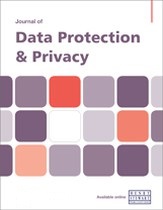The Illusion of Choice: Re-imagining digital consent in India through a feminist lens
Abstract
This paper examines the feminist critique of digital consent in India. The study focuses on how the conventional notion of consent fails to account for the nuanced realities of digital interactions, predominantly in the context of gendered power dynamics. The paper critically evaluates India’s emerging data protection framework, including the Digital Personal Data Protection Act, 2023 (DPDP Act), and its ramifications for consent-based data practices. By employing feminist legal theory, the research unpacks the shortfalls of the ‘opt-in’ consent model in addressing structural inequalities and coercive digital architectures that disproportionately disrupt marginalised groups, particularly women. Through an analysis of case studies, including data breaches and gender-based online surveillance, the paper identifies systemic gaps in current regulatory approaches. It highlights how these gaps perpetuate harms such as surveillance capitalism, digital violence and the erosion of autonomy in online spaces. The findings reveal that prevailing legal mechanisms fail to address the sociocultural and economic contexts that shape women’s digital experiences, often reducing consent to a mere procedural formality. The paper concludes by advocating for a transformative approach to digital consent that integrates intersectional feminist principles. It proposes shifting from individualistic consent frameworks to collective and relational models of agency, highlighting accountability, equitable access and safeguarding vulnerable communities. This reimagining of digital consent has broader implications for global debates on data justice and human rights in the digital age. By contextualising the Indian experiences within the broader feminist critique of technology governance, the article contributes to a critical understanding of how law can better address gendered inequalities in digital ecosystems. This paper is also included in The Business & Management Collection which can be accessed at https://hstalks.com/business/.
The full article is available to subscribers to the journal.
Author's Biography
Aafreen Mitchelle Collaco Aafreen Collaco has experience teaching at leading law schools in India. She holds an LLB(Hons.) degree from Goa University and an LLM in IPR and technology law from O.P. Jindal Global University. She was awarded the Gold Medal for standing first in LLM and the Nani A. Palkhiwala Memorial Gold Medal for academic excellence. Over the years, she has emerged as an educator and mentor for law aspirants and continues to serve as an adviser to law schools and budding legal enthusiasts. As the Assistant Director, University Engagement and Partnership, Aafreen provided strategic direction and oversight to the LSAC Global Law Alliance Members. Previously, she has also taught at BITS Laws School, BITS Pilani (Mumbai Campus). Currently, she is a PhD scholar in law at Jindal Global Law School, OPJGU. Her PhD focuses on the intersection between privacy law and data protection in India.
